32 facts about American Bulldogs
From the most popular mascots to Hollywood stars, these facts about American Bulldogs are full of surprises!
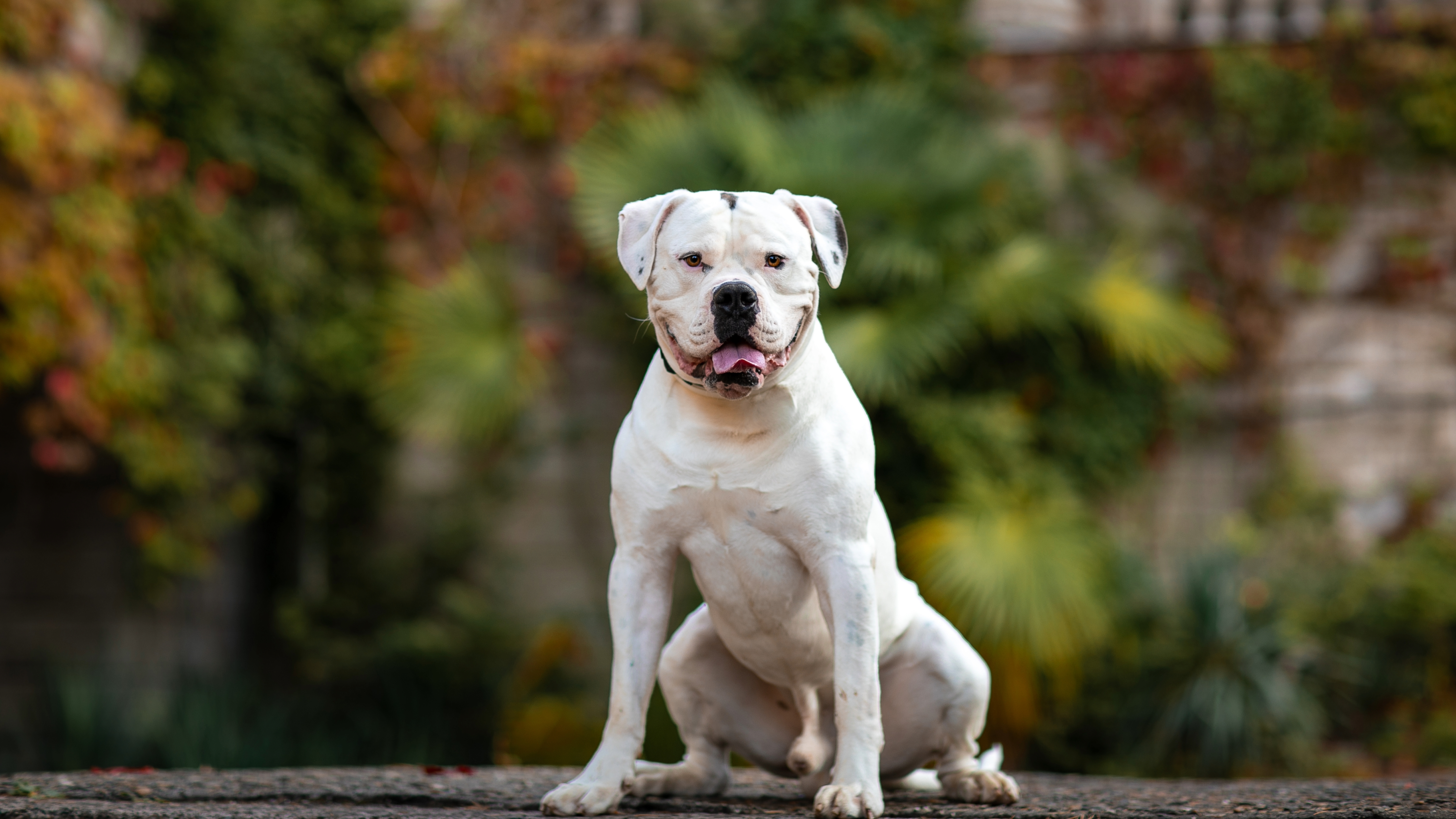
We know we’re supposed to be the pet experts, but there were so many facts about American Bulldogs that we had no idea about until we pulled together this guide!
Originally bred to be guardian dogs who protected people and livestock in the southeastern parts of the United States, they’re now popular mascots and devoted family dogs who love nothing more than a good play session with the best dog toys.
An active pup who requires a lot of mental and physical stimulation to stay happy and healthy, the American Bulldog’s history as a guard dog means they benefit from an experienced owner and early training and socialization.
However, as long as they’re given plenty of exercise and are trained with positive methods and a patient approach, the loyal and loving American Bulldog can make for a wonderful companion.
1. They're taller than other bulldogs
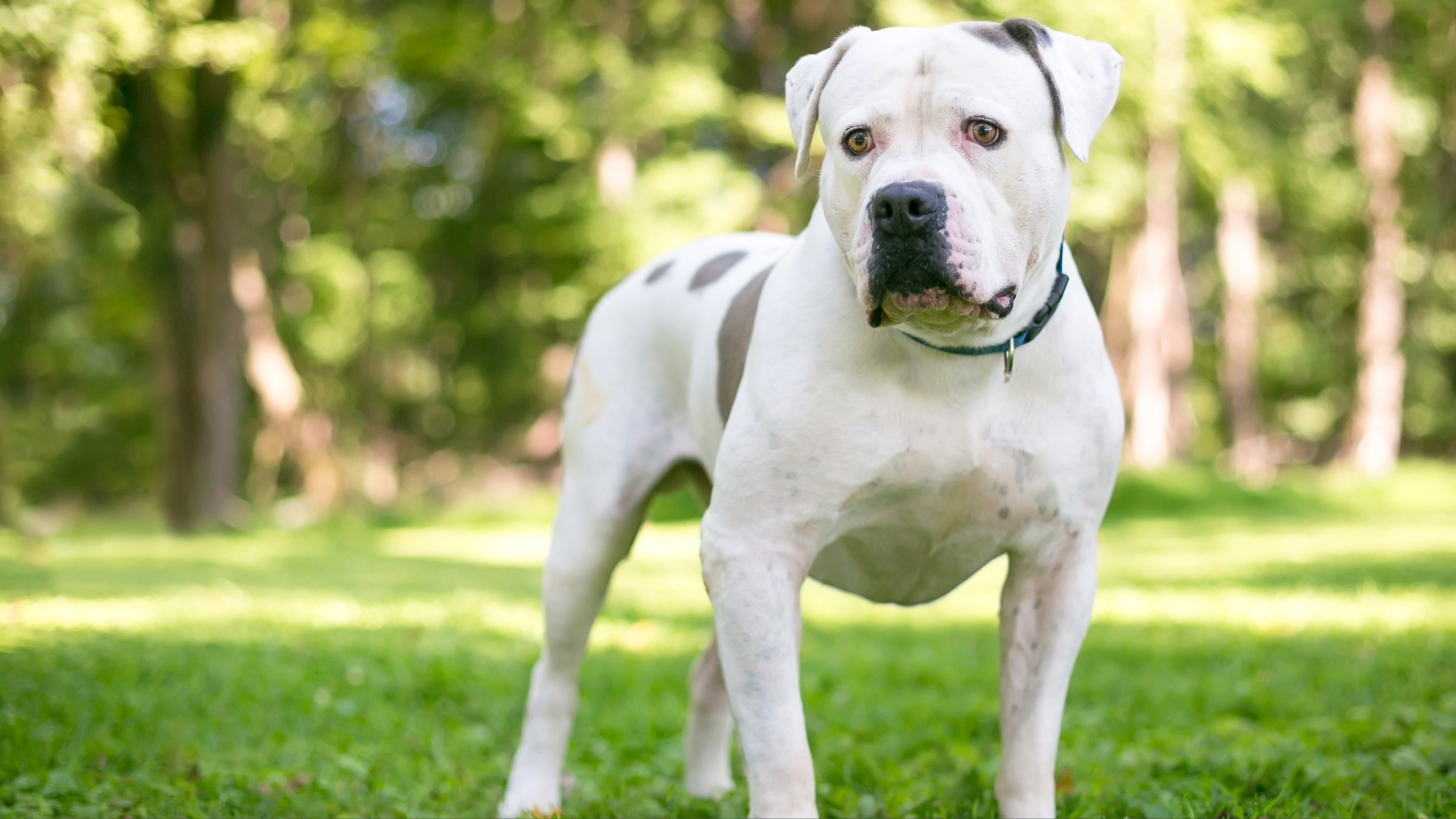
Unlike the English Bulldog and the French Bulldog (two of the best dog breeds for companionship), the American Bulldog is quite tall, growing to between 20 and 28 inches by the time they reach adulthood. In comparison, English Bulldogs measure around 15 inches and French Bulldogs stand at a rather petite and dainty 12 inches.
2. American Bulldogs are descendants of English Bulldogs

A descendent of the English Bulldog, the American Bulldog is believed to have arrived in the United States with their immigrant human parents in the 1800s. They were mostly used by farmers and ranchers to guard their stock but they also proved to be amazing at catching feral pigs.
3. They have a stocky build

A stockily built dog with a large head and strong jaw, the American Bulldog has a muscular and beefy body with a deep broad chest and back. Their tail is thick at the base and tapers to a point at the end, however, because the American Bulldog is a type and not a breed in and of itself (there are many variations), their appearance can vary.
Get the best advice, tips and top tech for your beloved Pets
4. Hollywood royalty
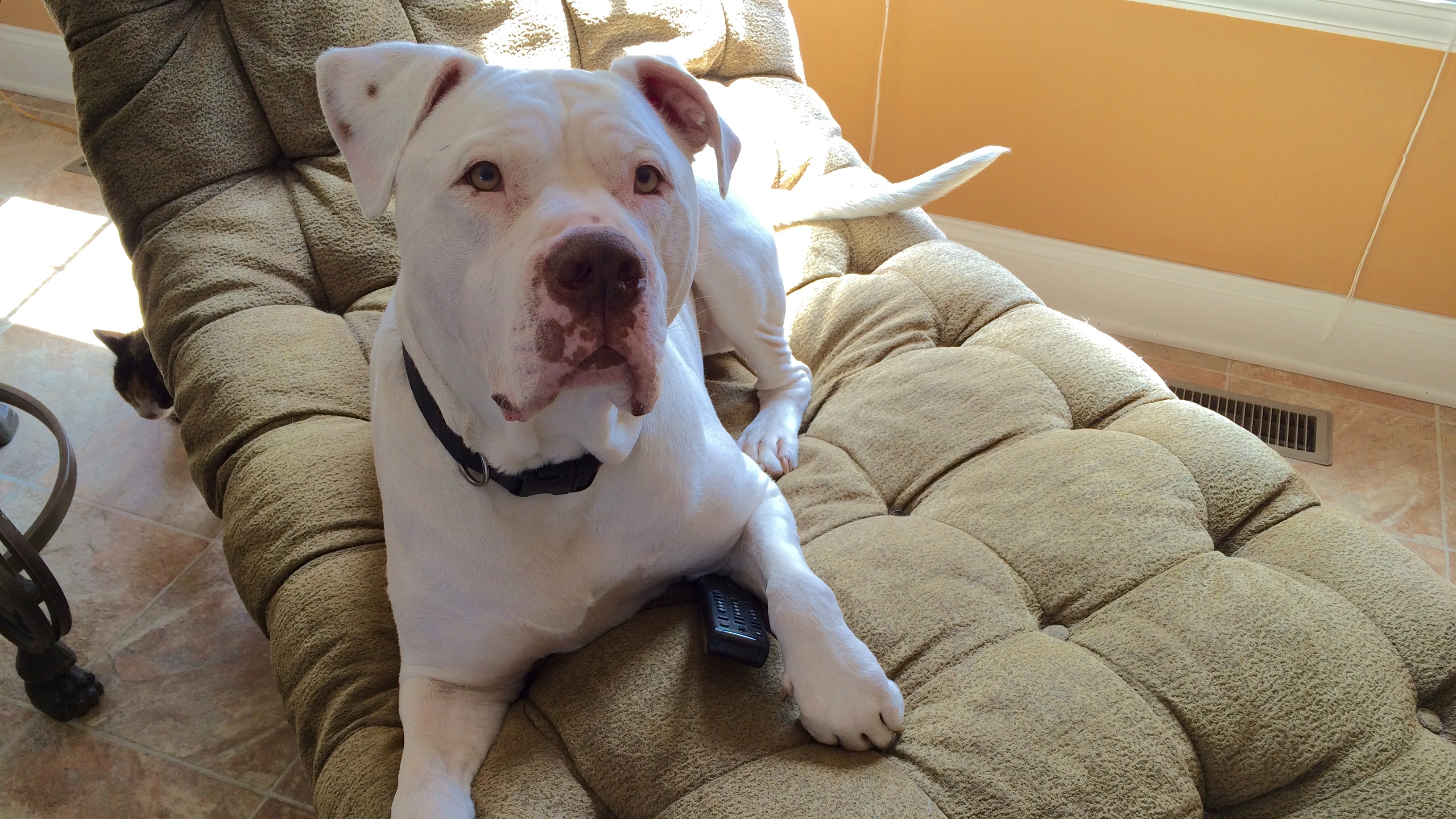
When it comes to the type of dog most likely to grace our screens, the American Bulldog is at the top of the list. With roles in films and TV shows such as Cheaper By The Dozen, The Little Rascals, and Homeward Bound, they are one of the most widely recognized pups in TV and movie history.
5. Bred to be guardians
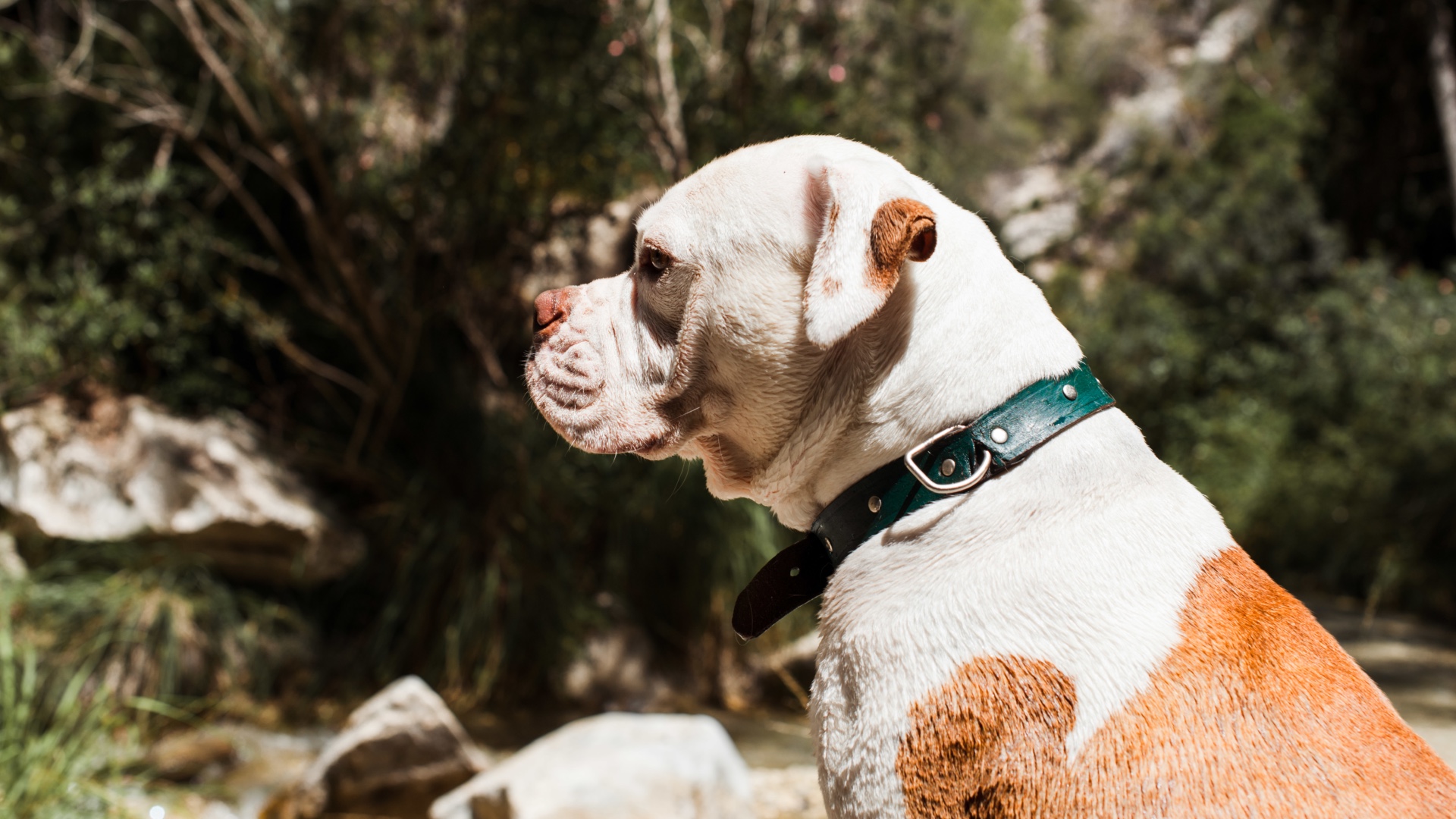
The modern American Bulldog can trace its roots back to the colonial American Bulldog that lived in the southeastern United States in the 17th century. Here they offered personal and property protection to plantation owners and ranchers while also helping to herd and catch large animals. They increased in popularity in the 1980s and have gone on to become one of the most popular family and property protection dogs.
6. They can't swim very well
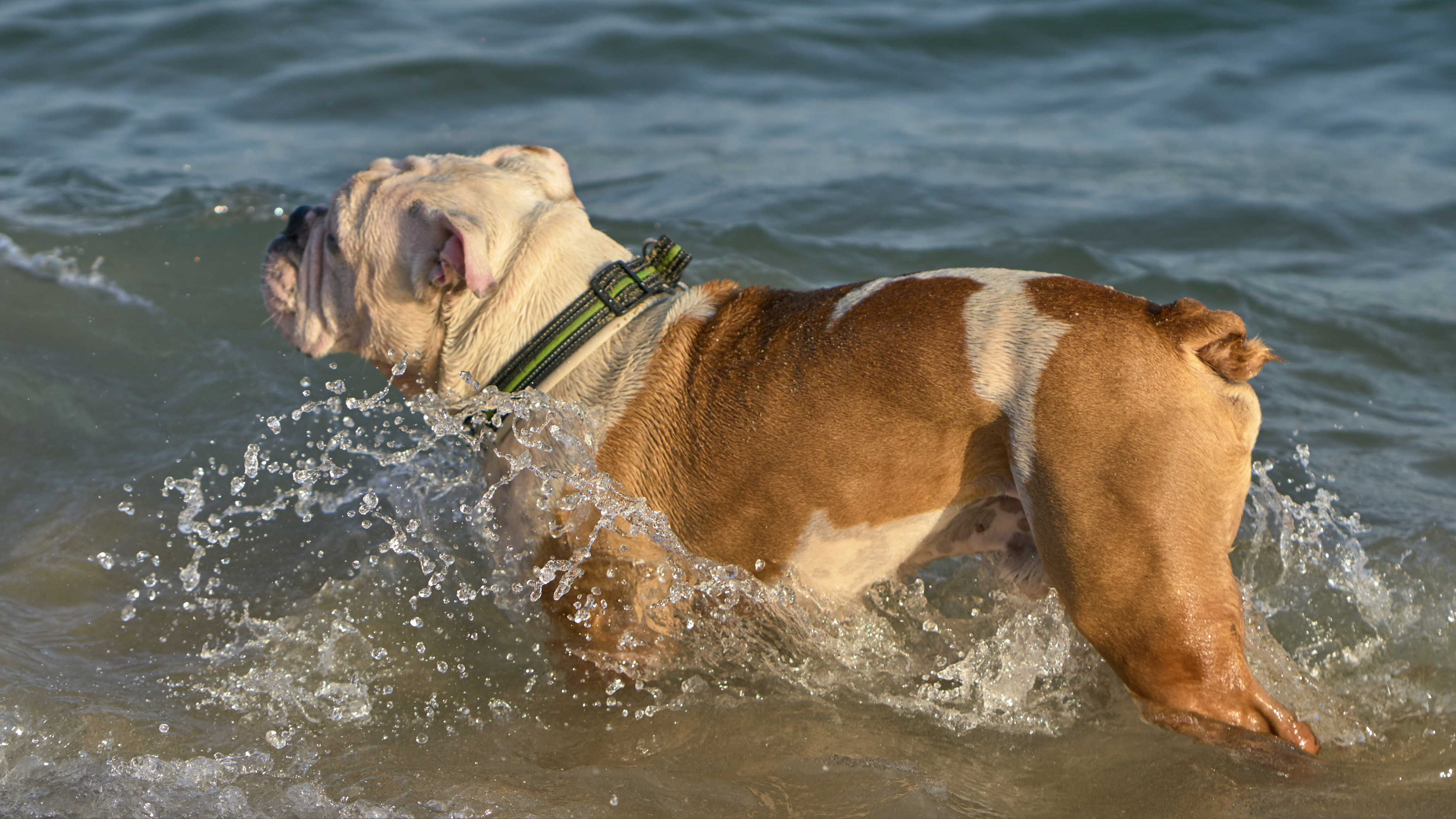
If you’re after one of the best dog breeds that are made for swimming, we hate to break it to you but you’ll want to steer clear of the American Bulldog. While not all dogs are good at swimming, most tend to do well after a bit of practice, however, that’s not the case with this muscular pup. Because they have short hind legs and bulky bodies, they have a hard time keeping themselves afloat, so if you ever take this dog anywhere near the water, make sure they’re fitted with a lifejacket.
7. You won't find a more popular mascot

Did you know that bulldogs are the most popular mascot in the world? It’s true! More organizations around the world use a bulldog as a mascot than anything else, and universities, in particular, are super fond of this pup, with 43 universities in the United States choosing the bulldog to represent them. Not all of them are American Bulldogs, of course, but they’re certainly well-represented.
8. They came close to extinction
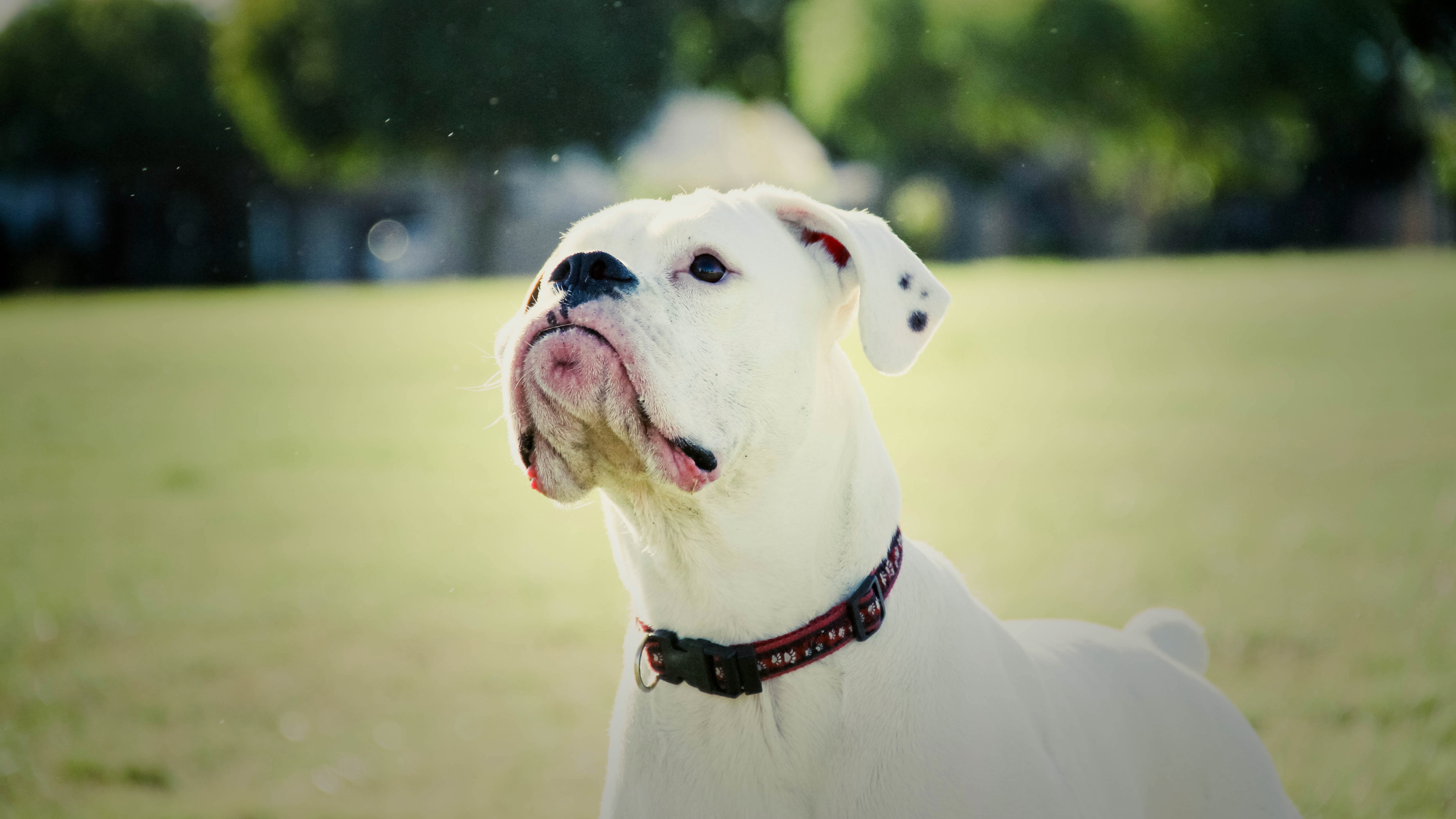
The American Bulldog came very close to extinction in the 1940s after their owners were forced to leave them behind when they were called to fight in World War II. Thankfully, a breeding program set up after the war by John D. Johnson and Alan Scott ensured that the American Bulldog survived.
9. Heavy shedders
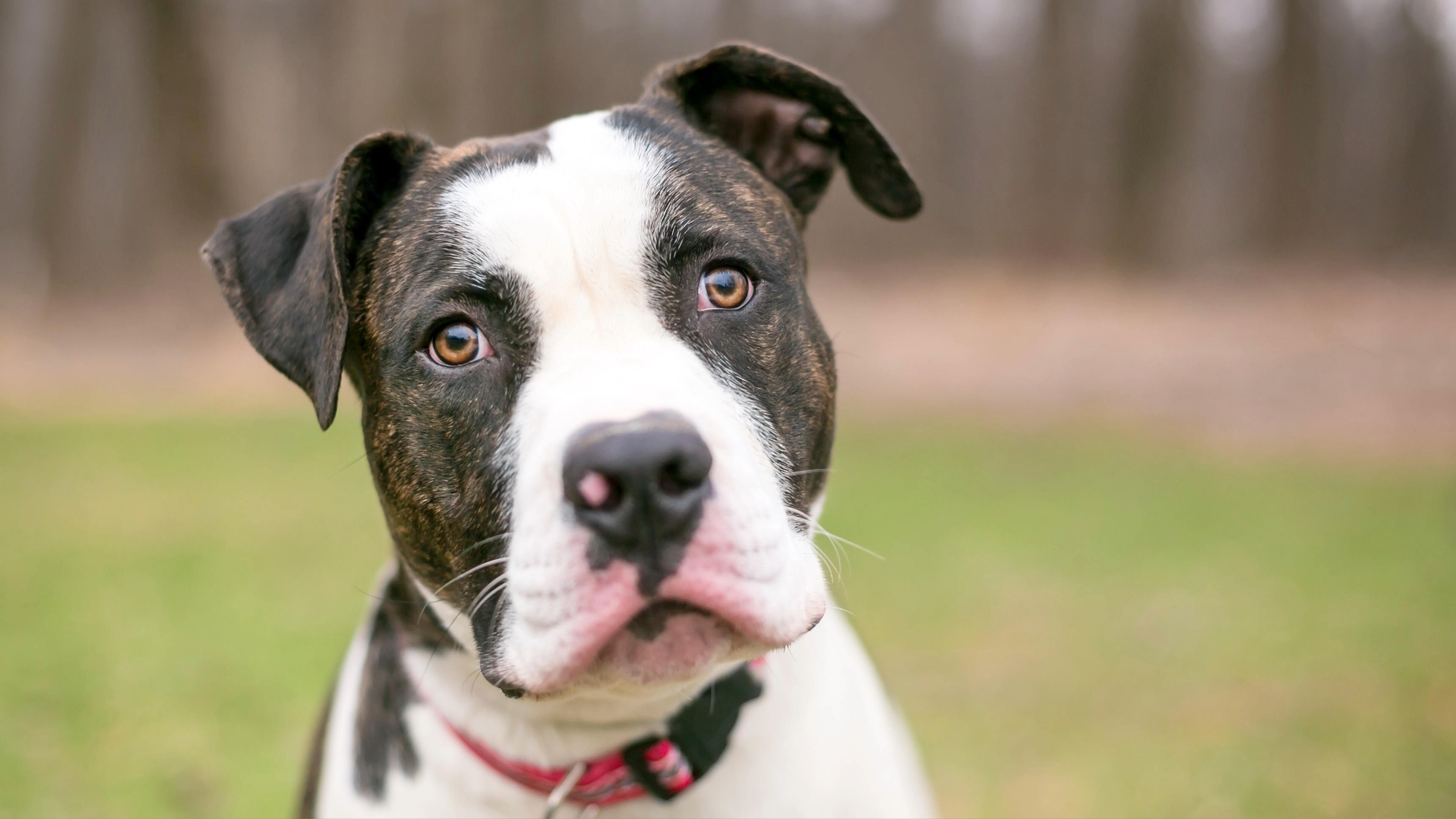
If you decide to welcome an American Bulldog into your family, you’ll definitely want to read up on how to groom a dog! While they’re not high maintenance overall, they do shed frequently throughout the year, so when it comes to how often should you brush your dog, we’d recommend daily with this pup to minimize the amount of hair that gets stuck in your carpet, furniture, and clothing.
10. Full of energy
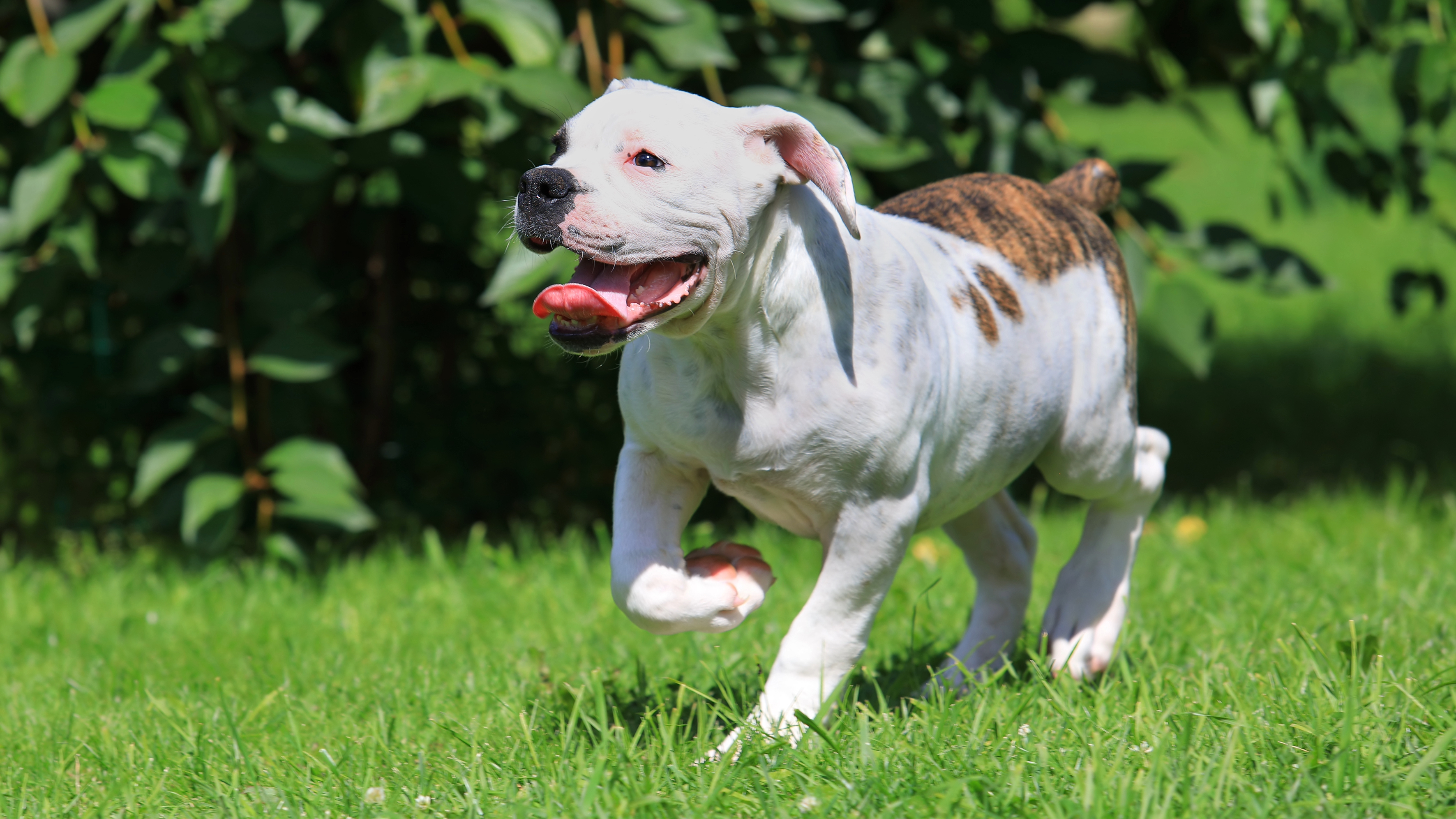
When it comes to high energy dog breeds, the American Bulldog is right up there, making them a perfect choice for those who live an active lifestyle. Because they were bred to be working dogs, they are athletes first and foremost and need at least an hour of vigorous activity each day to keep them happy. Not content to laze about on the couch all day, these pups thrive when they’re kept busy.
11. Drool excessively

Not a fan of doggy saliva? You might want to avoid the American Bulldog. Lovable as they may be, this pup sure can drool and it tends to be excessive with many owners reporting that they frequently find puddles on their furniture and floors.
12. Socialization is very important
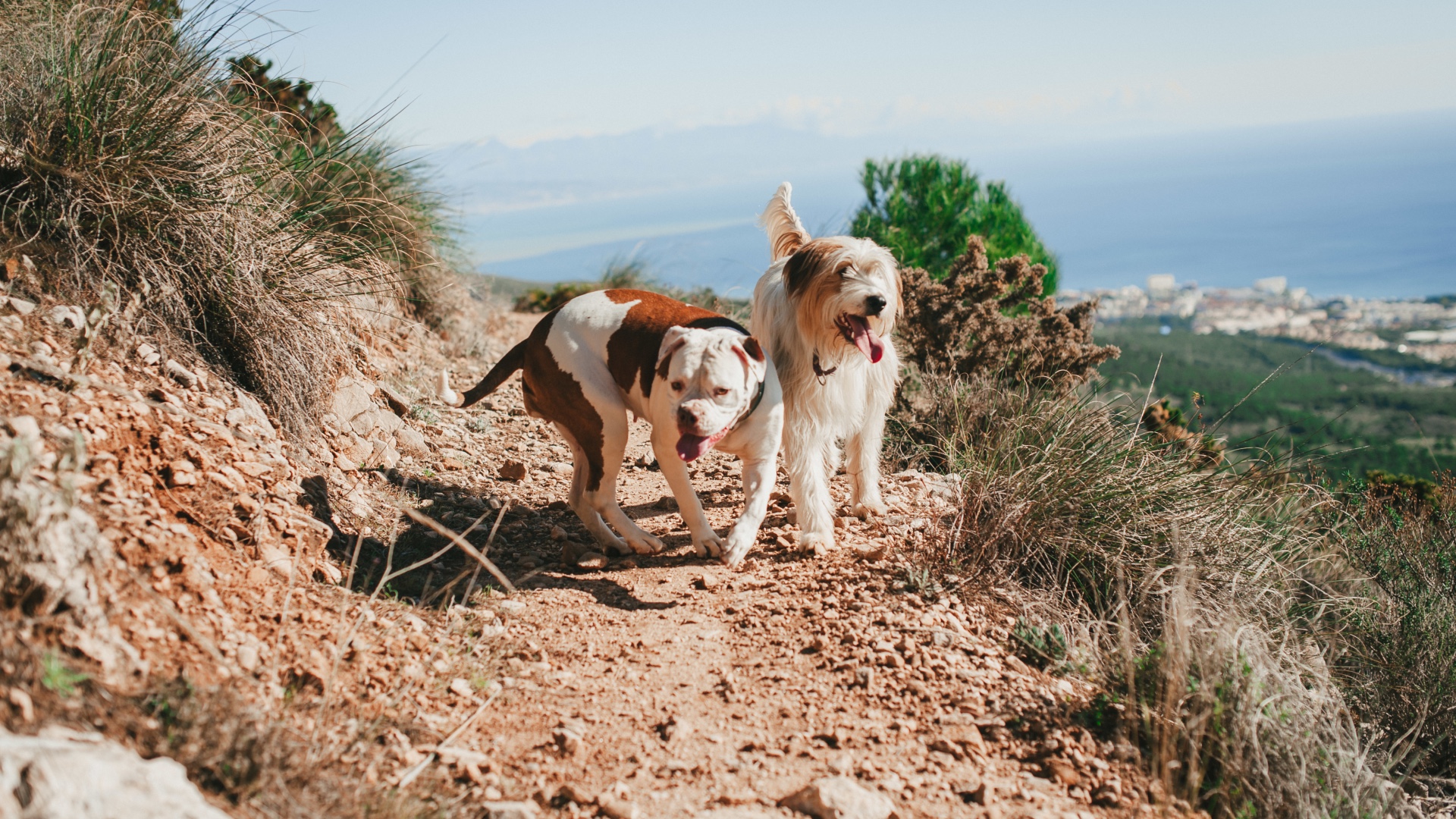
Early socialization is an absolute must if you plan on welcoming an American Bulldog into your family. They can be very wary of strangers and quite aloof, and because they were trained to protect property and their humans, it’s vital that they learn how to interact with people of all ages and stages in an appropriate way.
When it comes to our top tips for socializing a puppy, we recommend you expose your new fur baby to a wide range of new experiences both outside (buses, cars, bikes, and coffee shops, for example) and inside (sounds like the vacuum cleaner, dishwasher, hairdryers, and music) as well as other animals and people.
13. Their coat comes in a range of colors
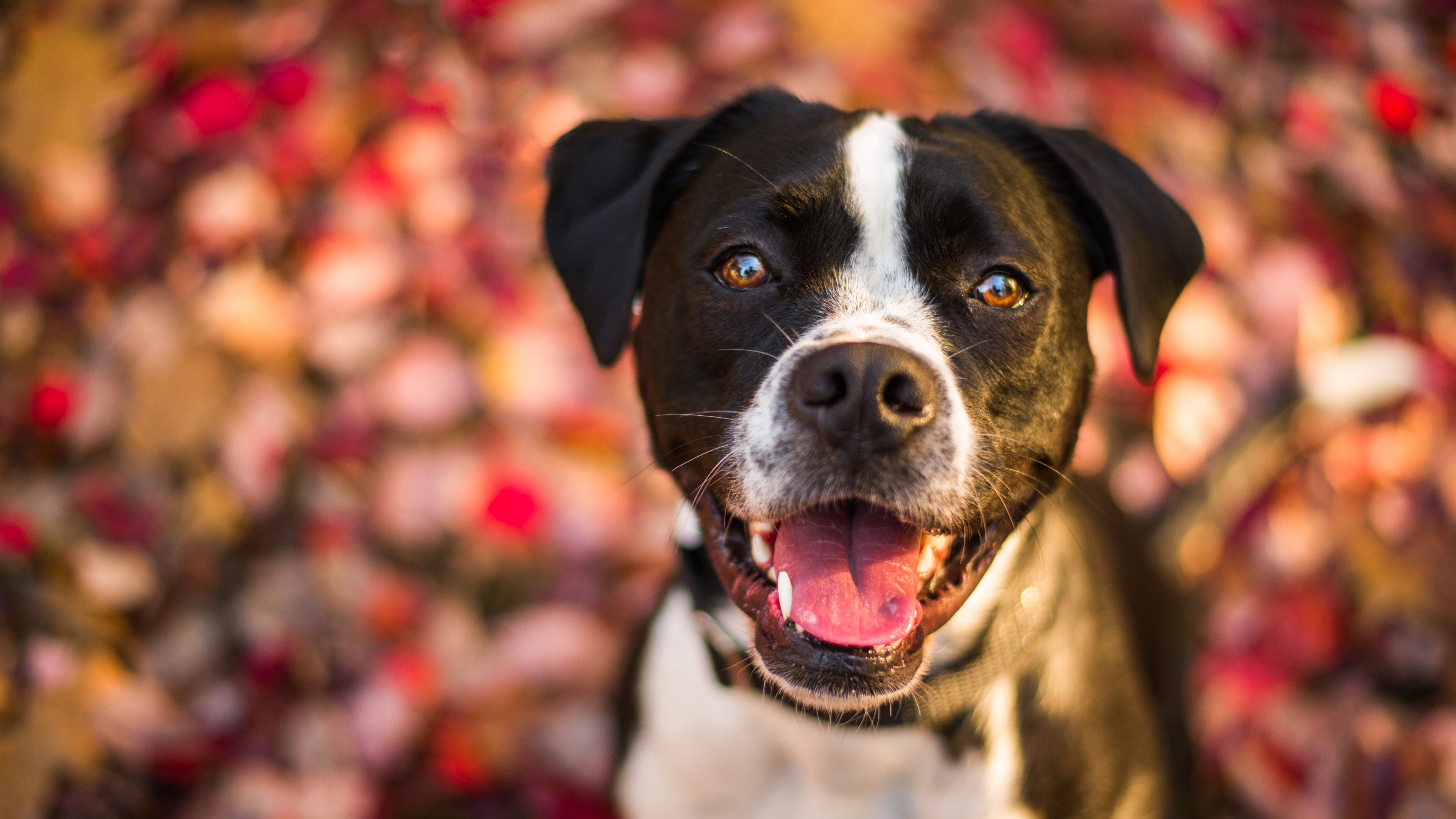
American Bulldogs come in several different colors. They’re typically white with patches of red, black, or brindle, but they may also be all-white or have coats that feature brown or fawn patterns.
14. They require a lot of mental stimulation

Break out the best dog puzzle toys because this is one pup who’s going to need them. The American Bulldog is an intelligent pup who requires a lot of mental stimulation to keep them happy and healthy. If they don’t have the opportunity each day to give their brain a good workout, they can become destructive and hyperactive so keep their minds busy with a range of toys and games.
15. Obedience training is key
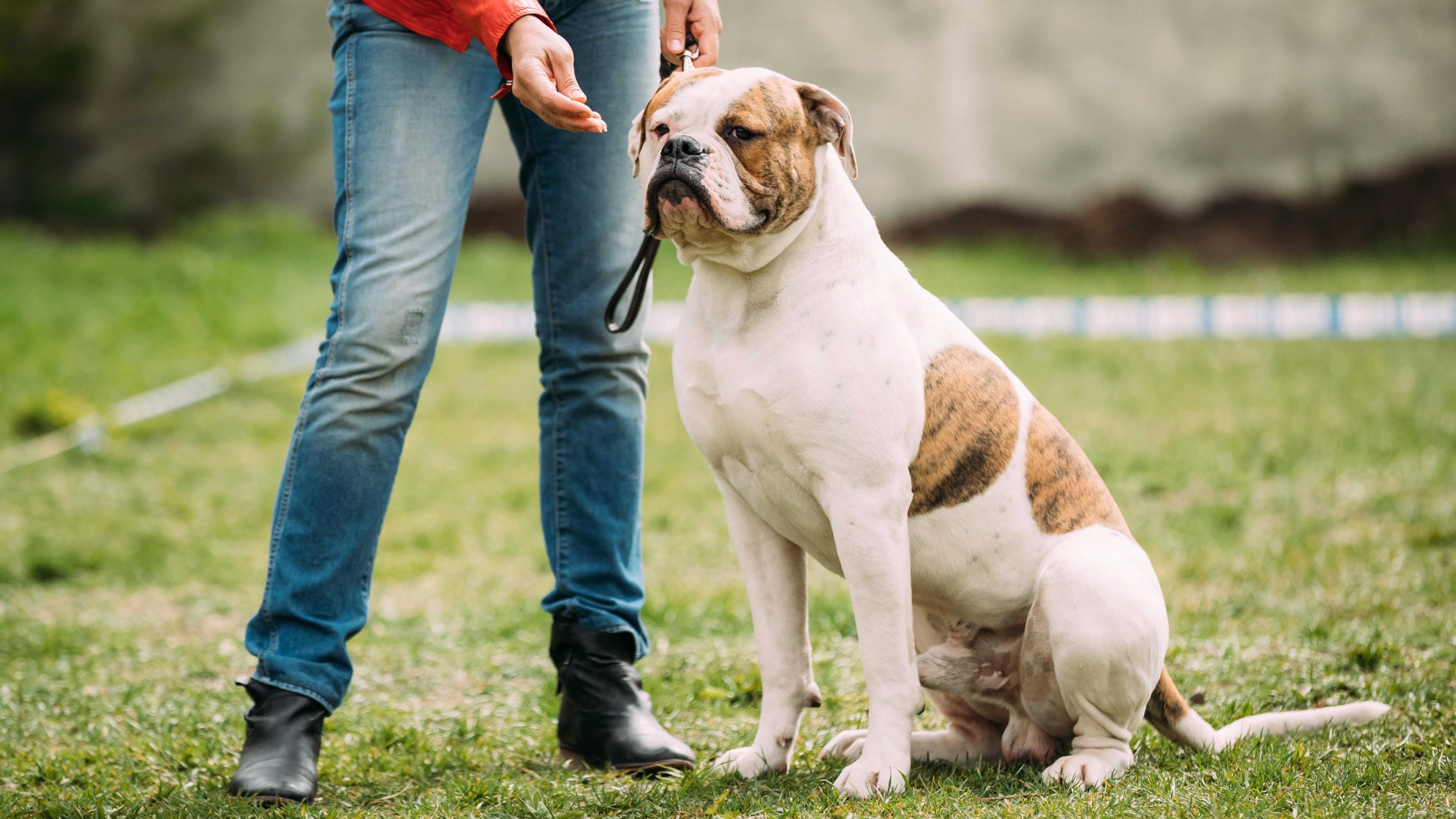
American Bulldogs have a reputation for being stubborn and hard-headed but they’re also very intelligent and respond beautifully to positive reinforcement — especially when trained from an early age. When it comes to practical tips for training your dog on your own, patience and consistency are key with this pup and you’ll find that once you’ve figured out what works for your American Bulldog, the whole process will get easier. Obedience training is vital to ensure your canine companion is able to walk nicely on a leash and come when you call them.
16. Best suited to experienced owners

Because American Bulldogs need firm and consistent training and a confident owner who is able to let them know their place in the family pack, they do best with experienced owners who know how to handle a determined and intelligent dog. While the American Bulldog is kind, friendly, and personable, they need firm boundaries and lots of patience.
17. Wary of other pets

While they are generally very gentle and loving family companions, American Bulldogs are known for their dislike of other pets. Many will not tolerate living with a dog of the same sex and may behave aggressively towards them. They can also be wary of cats and other small pets, so early training and socialization are key if you plan to have dogs and cats living together or if you want your American Bulldog to be able to live peacefully with another canine companion.
18. Daily physical activity is vital

If you’re on the hunt for low energy dog breeds, you’ll want to cross the American Bulldog off your list. These athletic, working dogs need to be kept busy and active to prevent destructive behaviors. They require a significant amount of exercise, certainly no less than an hour a day and upwards of two hours if possible. This can include things like walking, hiking, jogging, running, games of tug-of-war, or other activities like training new skills or behaviors.
19. They're part of the guardian breed group

Dogs in the guardian breed group have historically been bred to guard people and property. They tend to be intelligent, alert, confident and make loyal and solid companions, however, they can also be aloof and wary around strangers and require lots of training and socialization from a young age to ensure that they behave appropriately around people they don’t know. Alongside the American Bulldog, this group also includes the bull terrier, American Staffordshire Terrier, mastiff, Doberman Pinscher, and cane corso.
20. Sensitive and caring
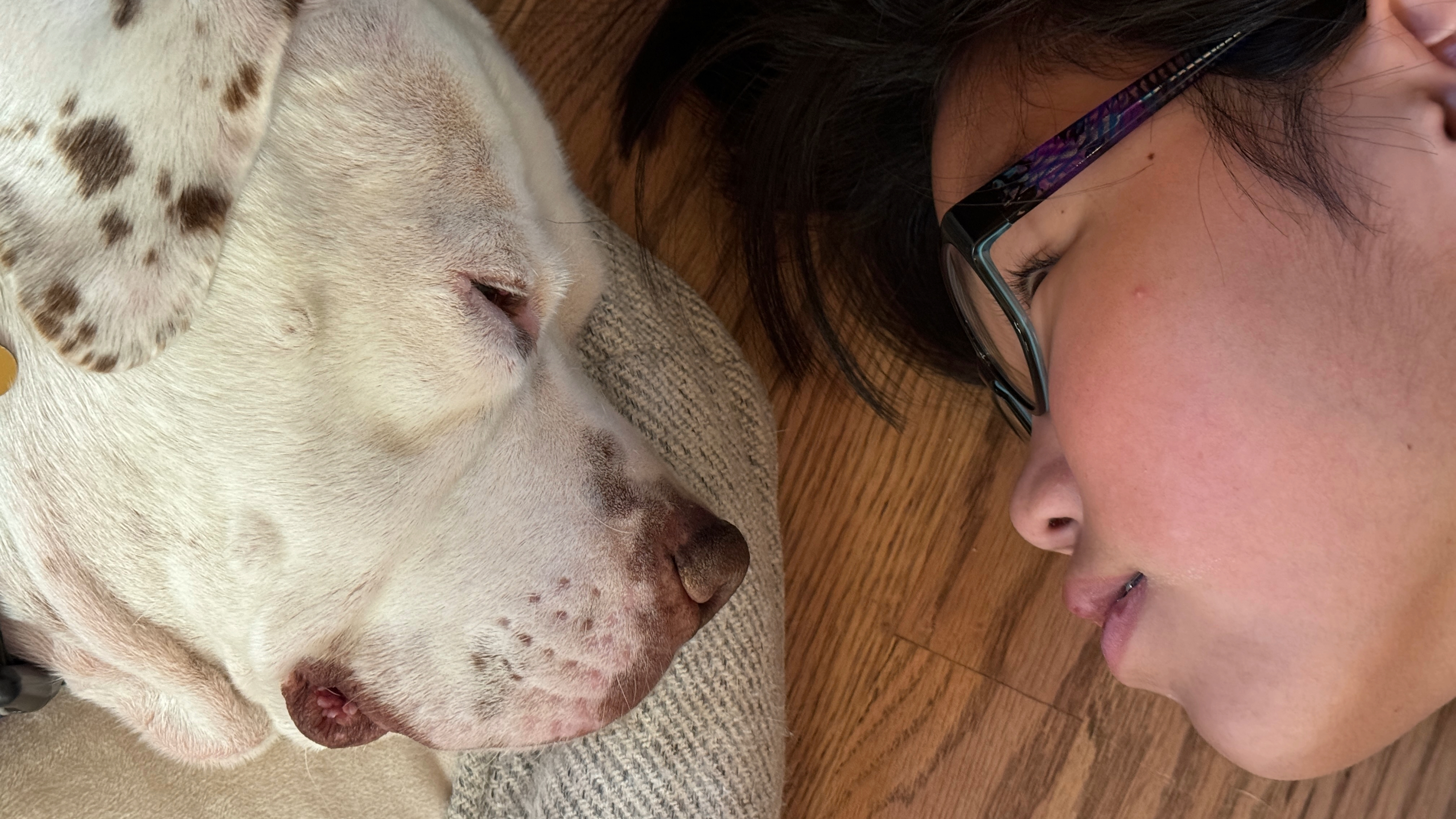
While their guarding instincts and bulky physique don’t immediately fill your mind with thoughts of a gentle-hearted dog, the American Bulldog is surprisingly sensitive and deeply caring towards their owners. Because they’re so protective of those they love and bond so deeply with their human family, they’re one of the best emotional support animal breeds for anyone looking for a loving companion.
21. Loyal
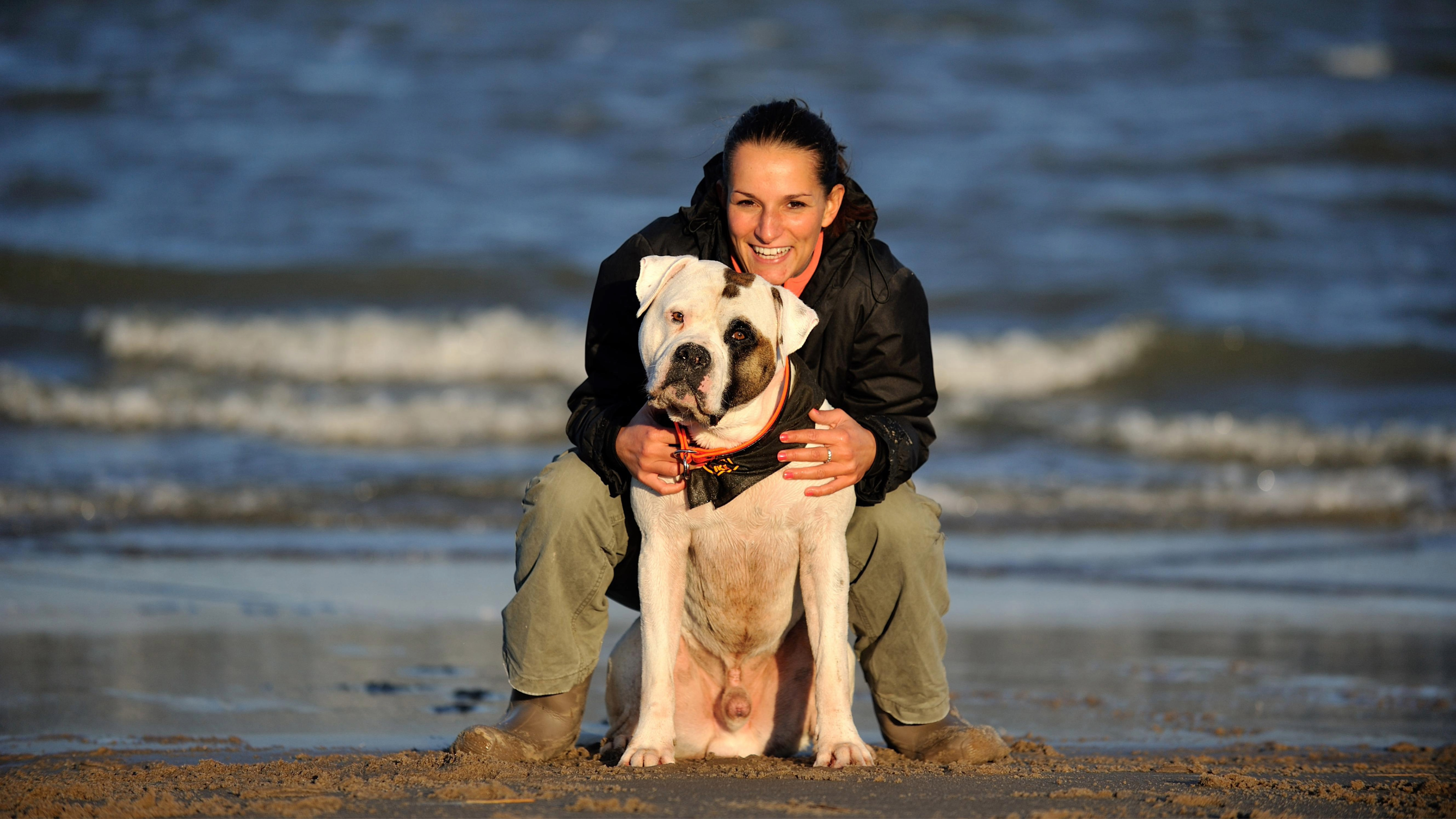
Brave, loyal and prepared to protect their humans no matter the cost, the American Bulldog is deeply devoted to their family. This loyalty is rooted in their working-dog heritage when they were tasked with guarding property and livestock and today it translates into a canine companion who will always have your back.
22. They like having a job to do

Because they were originally bred to work on ranches and take care of livestock, the athletic and energetic American Bulldog is never happier than when being put to work. A dog with an impressive amount of stamina, this pup thrives when engaged in vigorous activities making them one of the best farm dogs.
23. Playful and silly

Known for being silly and clown-like when excited or happy, the American Bulldog is bound to keep a smile on your dial with their funny antics. Alongside making you laugh, they also love to play, so if you’re on the hunt for new ways for improving your relationship with your dog, engaging in regular play sessions with them will definitely win you some major brownie points!
24. Highly intelligent
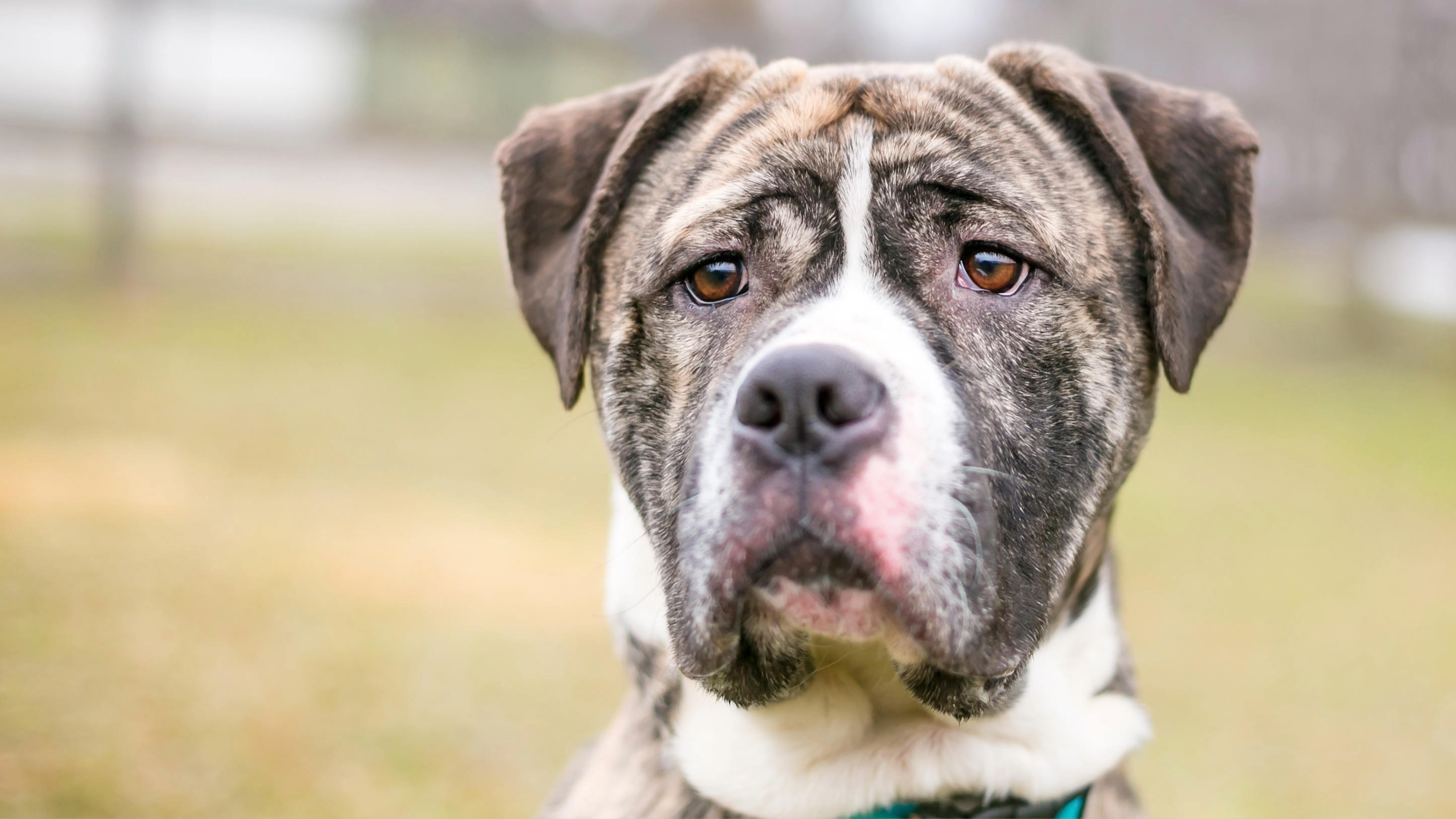
A smart dog who’s eager to please, the American Bulldog loves giving their brain a good workout so be sure to invest in a puzzle toy or two that will provide them with a good mental challenge. Other ways to ensure this intelligent pup thrives is to learn some quick and easy tricks to teach your dog — some of our favorites include high fives, walking backward, and waving.
25. Adaptable
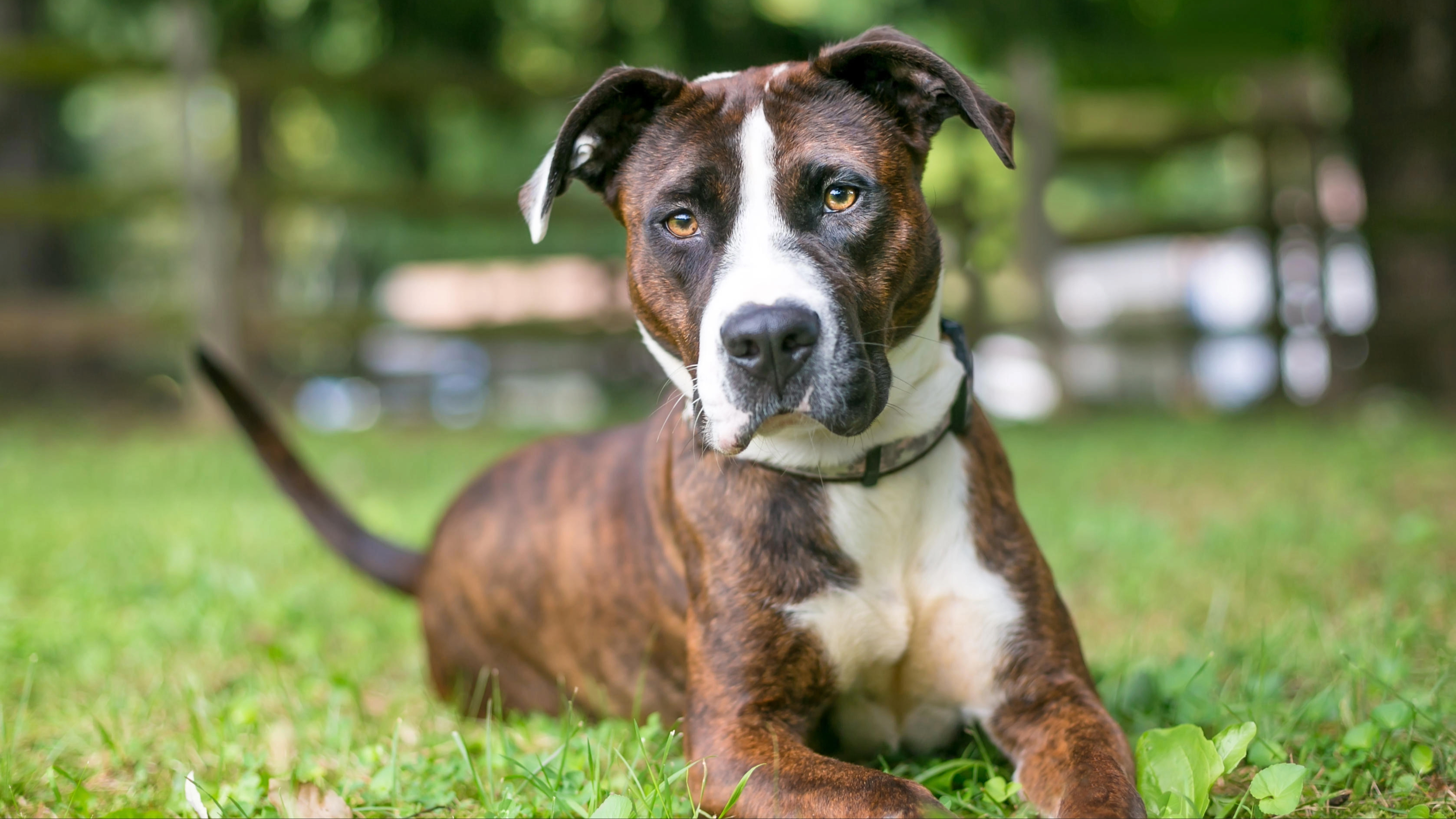
If you’re after a canine companion that will happily live just about anywhere, the American Bulldog is well worth considering. As long as they get plenty of exercise each day, they’ll be perfectly content in most environments, from an apartment in the city to a rural farmhouse and everything in between.
26. Good with children

One of the best dogs for families, the American Bulldog loves children and as long as they’ve been trained and socialized from an early age, they make wonderfully affectionate, playful, and protective companions.
27. They need a high-quality diet

When it comes to the best dry dog food or wet food, the American Bulldog does best on a high-quality diet with real meat as the first ingredient and plenty of protein. Omega-3 fatty acids can also be really helpful for joint health as the American Bulldog is susceptible to suffering from joint problems as they age. Because they’re prone to obesity, it’s important not to overfeed them to prevent weight gain.
28. Prone to health issues
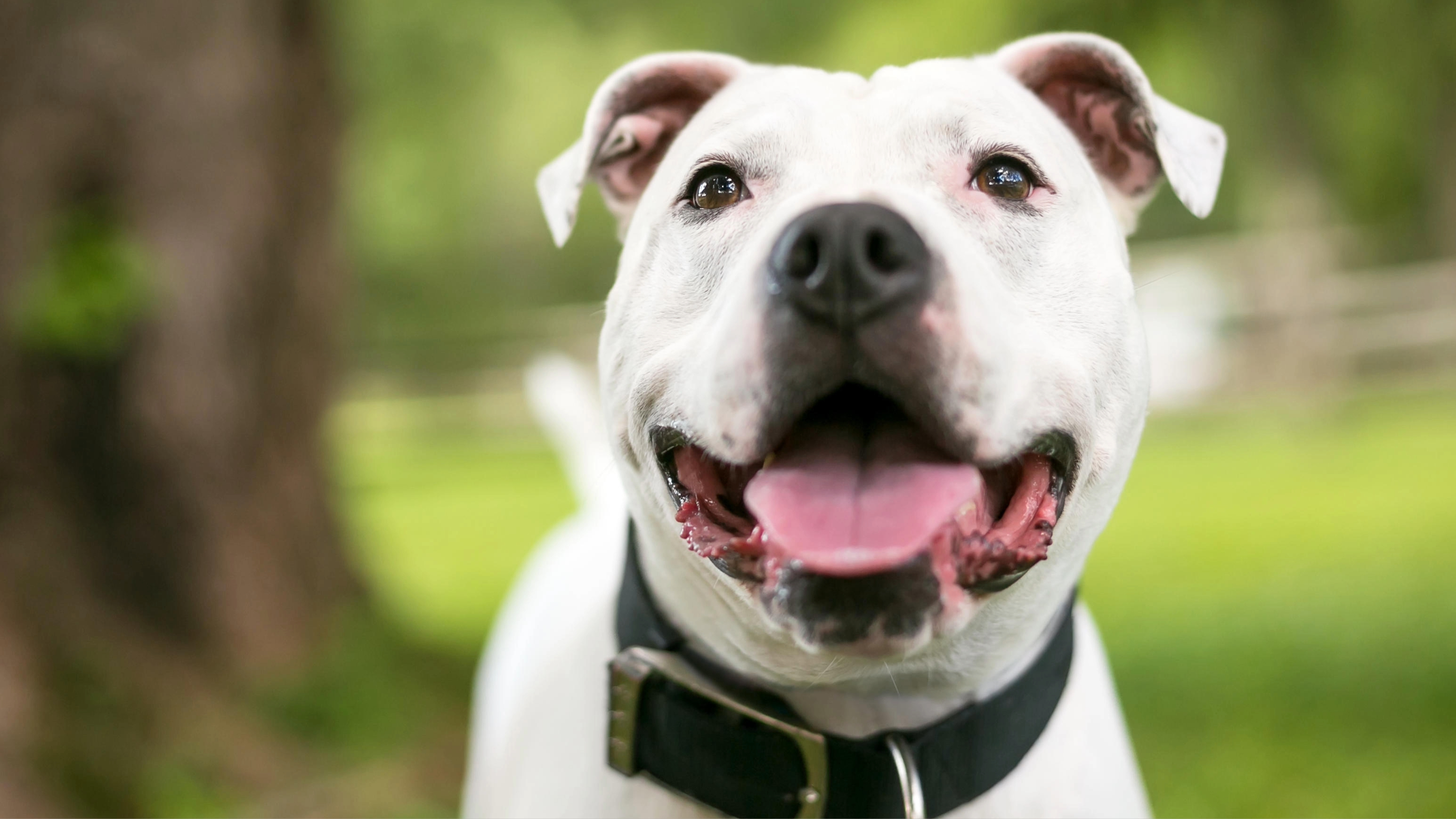
As with all dogs, the American Bulldog can be prone to certain genetic health conditions. These include hip and elbow dysplasia, allergies caused by an overactive immune system, neuronal ceroid lipofuscinosis (a group of progressive degenerative diseases of the central nervous system), and obesity.
29. They’re not always recognized as being a breed
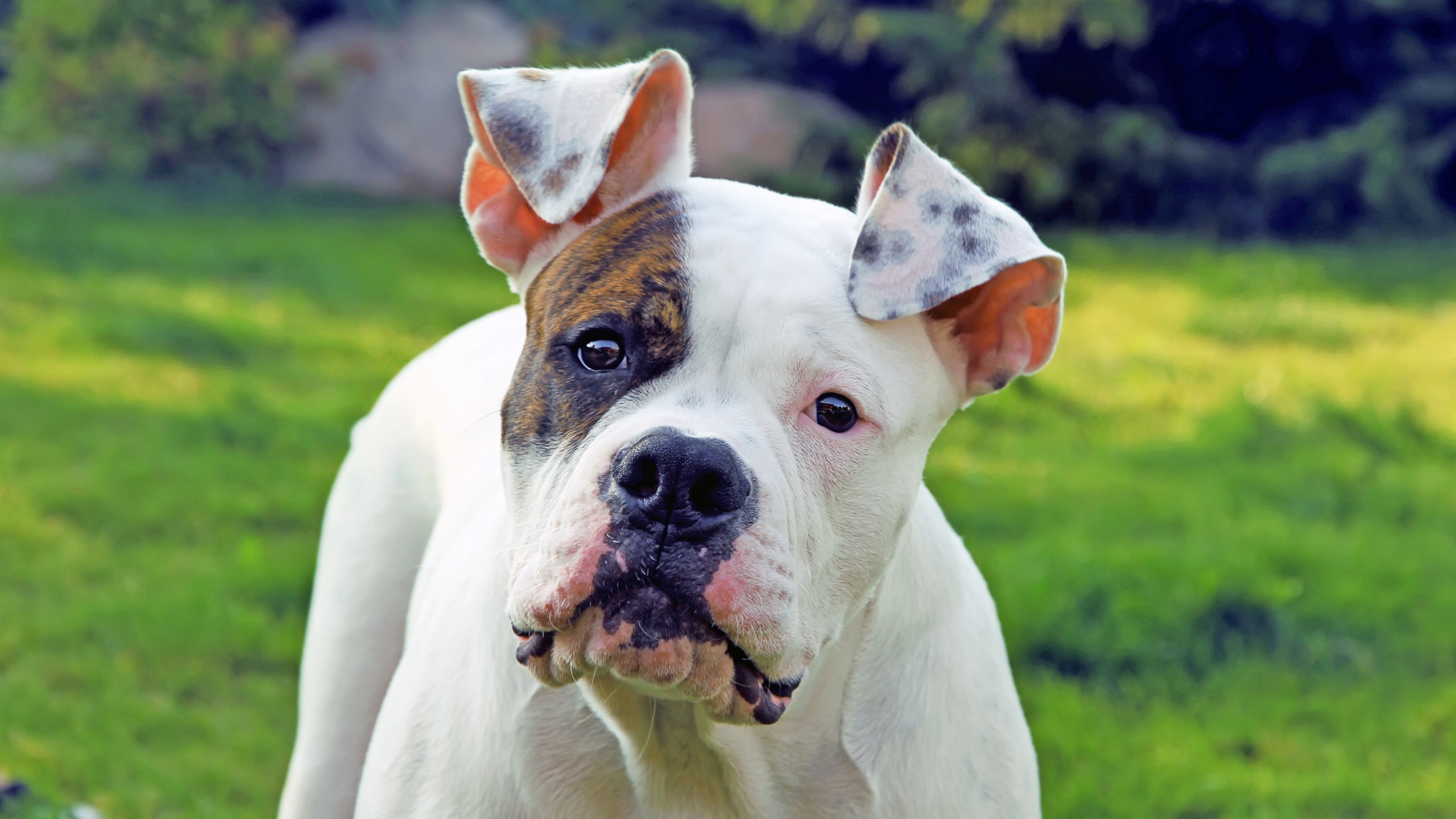
As yet, the American Bulldog has not been recognized as a breed in their own right in the United Kingdom. However, in the United States, the National Kennel Club registered them as a breed in 1970. There are considered to be two different types of American Bulldog – the Johnson (also known as the classic or bully type) and the Scott (also referred to as the standard or performance type).
30. They're known for being gassy
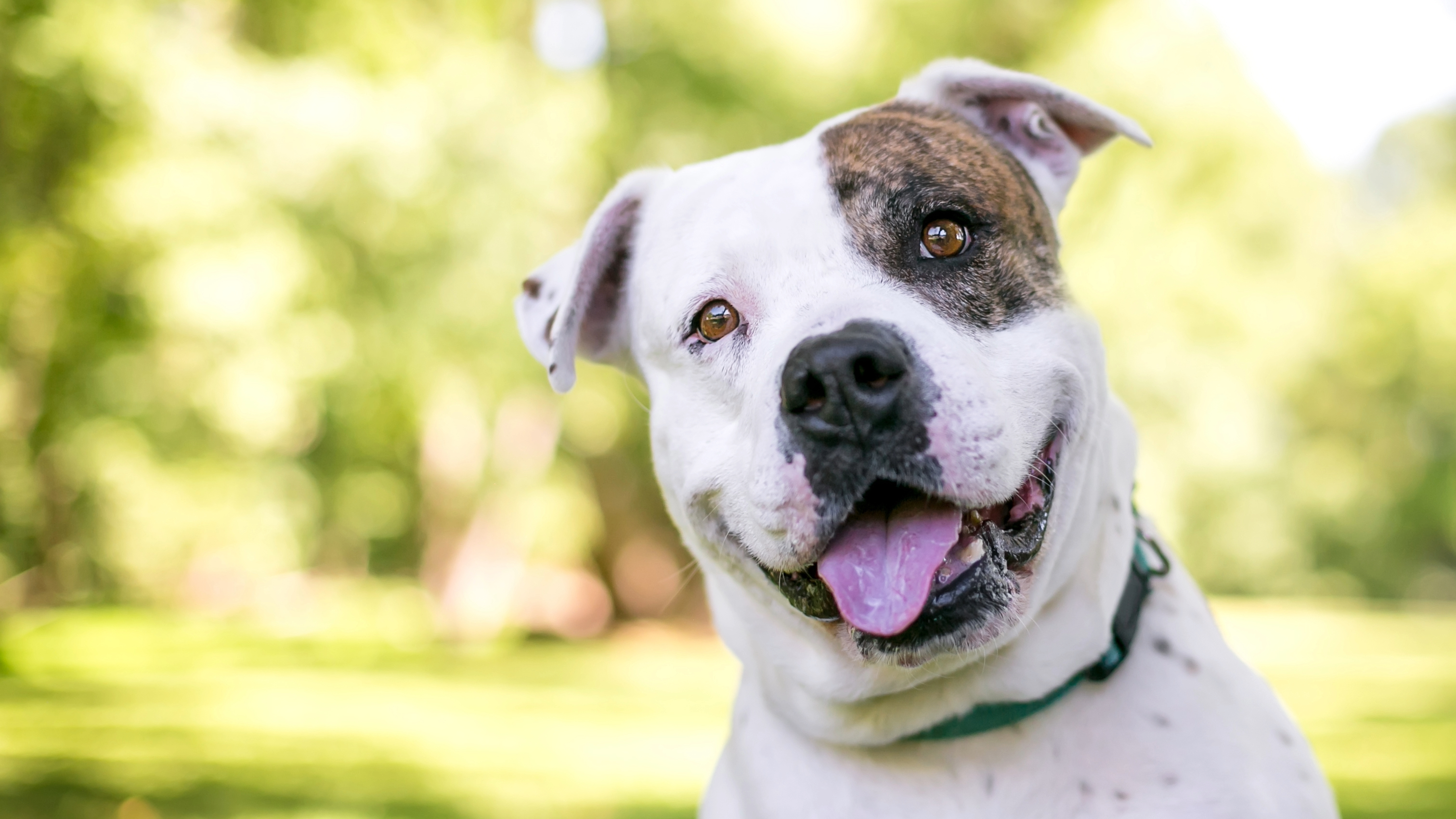
If you’re not a fan of flatulence (and let’s face it, who is?), you may find the American Bulldog a tad hard to live with. This pup has a reputation for being rather gassy – especially if they’re consuming a diet that’s higher in fat and certain carbs. Why do dog’s farts smell so bad? Well, apart from diet, swallowed air, digestive disorders, and allergies can all play a part so if you have an American Bulldog and find their farts often clear the room, try feeding them smaller meals and limit hard-to-digest foods.
31. Sensitive to warm weather

When it comes to the best dog breeds for hot weather, the American Bulldog is near the bottom of the list. That’s because as a brachycephalic breed, they can quickly overheat with their shorter muzzle making it difficult to release excess heat through panting. If you live in a hotter climate, be sure to exercise your pup during the coolest parts of the day and be on the lookout for signs of heatstroke in dogs.
32. They love to jump

Here’s a fun fact for you – due to their height, American Bulldogs are able to jump an impressive three feet in the air with some having been known to jump up to seven feet.
Enjoyed these facts? Here are our favorite interesting dog facts for you to enjoy! Or learn the difference between the American Bulldog vs American Bully

Kathryn is a freelance writer who has been a member of the PetsRadar family since it launched in 2020. Highly experienced in her field, she's driven by a desire to provide pet parents with accurate, timely, and informative content that enables them to provide their fur friends with everything they need to thrive.
Kathryn works closely with vets and trainers to ensure all articles offer the most up-to-date information across a range of pet-related fields, from insights into health and behavior issues to tips on products and training.
When she’s not busy crafting the perfect sentence for her features, buying guides and news pieces, she can be found hanging out with her family (which includes one super sassy cat and a kitten), drinking copious amounts of Jasmine tea and reading all the books.
She has written for a range of publications, including Fit&Well, Top Ten Reviews, LiveScience, Goodto, and Product Hunt.
